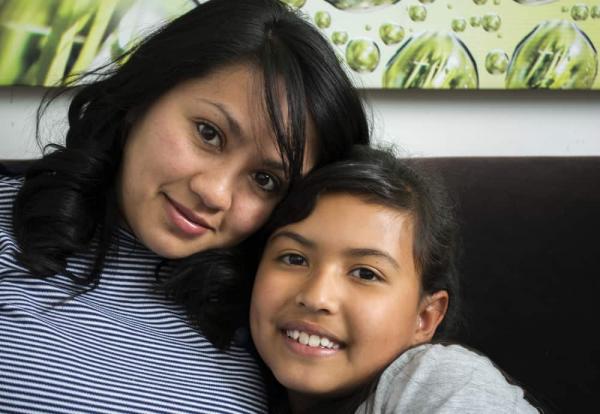
When people ask kids about their feelings during a divorce, they often clam right up. Fortunately, if you ask adults whose parents divorced when they were kids, they are full of information about how they felt back then.
Below are a number of things grown-up kids of divorce have shared that your own kids might be unable to share with you, either because they don't want to or because they don't really know themselves.
Basic behavior requests
1. Your kids are not therapists
In this difficult time, you're going to need a sympathetic ear and sometimes a shoulder to cry on. When this happens, contact a friend or even a professional counselor. This will be in your and your kids best interest.
2. Your unhappiness with their father rubs off on them
Even though the initial transition will probably be difficult, your kids won't be happier if you stay together. In fact, it could be the opposite. Being constantly stuck in the middle of two quarreling adults or abusive behavior can have a very toxic effect on your child that can result in long-term emotional damage.
3. Your kids don't want to see you cry
Children feel helpless when they don't know what to do, and they don't have a clue how to make you feel better. Again, turn to a trustworthy friend or a professional. If you have a regular venue where you can expel your negative feelings, there will be less chance of breaking down around your kids.
4. Don't make them choose
Your kids want to love you and your ex-spouse. It's important that you remember he will still be their father. Try to create the best possible custody arrangement that allows your child to spend time with you and your ex.
5. Avoid the "me vs. him" scenario
When it comes to raising your kids, you don't have to be married to be a team. Do your best to make joint decisions regarding raising your children.
6. Don't discourage your ex-spouse from attending activities
Your kids will still want both of you at their games and other school and social events, even if it's not dad's week for visitation.
BUT if you are dealing with domestic abuse, remember these 4 things:
In the case of escaping a domestic abuse situation, several of the previous items will not apply. You can get more help and information from The National Domestic Violence Hotline at 1−800−799−7233 and on their website.
1. Look at the signs in front of you
People who are in an abusive relationship sometimes can't see it. Recognizing the signs of abuse is the first step in getting all of you out of there and into a better environment.
Abuse isn't limited to physical harm and possible injury. Abuse comes in different forms, including sexual abuse, emotional abuse and mental abuse. Signs include being forced to do sexual acts you're not comfortable with, being called names or being threatened by your spouse.
2. It's NOT your fault
You need to know that abuse is never your fault. The choice to be abusive is your spouse's, not yours.
3. No one benefits from staying in an abusive relationship
If there was ever a time to ignore the argument, "You're staying for the kids' sake," this is it. Your children will not benefit from you staying in an abusive relationship, even if they aren't being abused themselves.
4. Take care of yourself
As a victim of abuse, you may feel you don't deserve love or care, not even from yourself. This couldn't be further from the truth. Make an effort to do things to nurture yourself both physically and mentally. This could include exercise, reading, finding a new hobby or better yet, taking up a hobby that may have been put aside during the marriage.
How leaving an abusive relationship will help your kids
Statistics show that divorce negatively impacts kids. However, there are certain situations where divorce really would be the best option for you and your children. If you're in an abusive situation, it's best to get out for your family's safety. Plus, your kids might learn a few things along the way.
11. It can teach your kids how to leave an abusive relationship
Contrary to John Lennon's, "All You Need is Love," when abuse is involved, love isn't enough. If you have the courage to walk away from an abusive relationship, it could someday help your kids make a similar step if it's needed.
12. They can learn the importance of moving on
When your children see you leave an abusive relationship and improve your life, they learn how to move on from less than ideal situations that compromise their safety.
13. They learn what abusive relationships look like
When you're in an abusive relationship, it's often hard to spot the signs that it's a bad situation. But when your kids experience it firsthand and watch you pull yourself out of it, they learn what signs to look for to avoid getting in the same type of relationship.
14. It can expand the definition of family
When divorce happens, people have a habit of coming out of the woodwork to help out. Parents of your kids' friends, extended family on both sides and your own friends will make themselves available to you and your kids to offer support. This can build closer relationships that will last for years.
From start to finish, there are many things your kids want you to know as you take the step to end your marriage, even if they don't know it themselves. Watch for signs and try your best to listen if your kids attempt to communicate how they're feeling.

